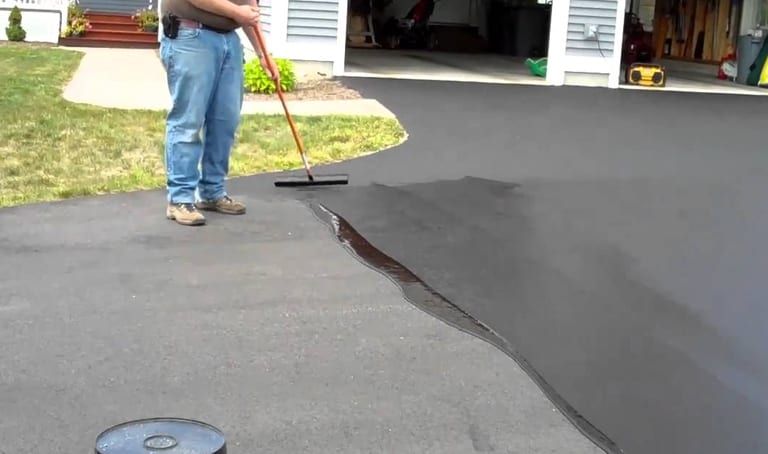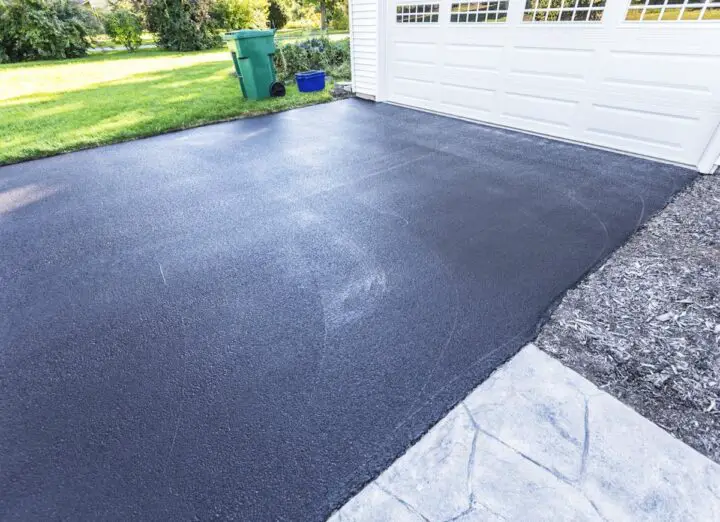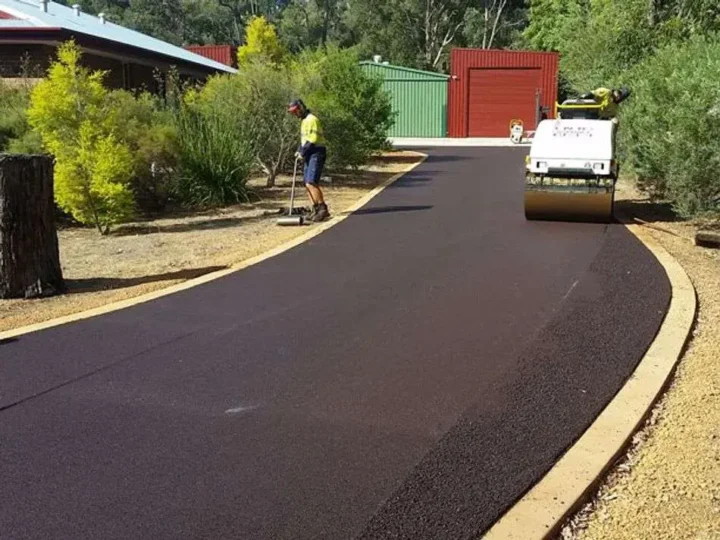How Long Should Your Driveway Last? Learn About the Factors that Affect Your Driveway’s Lifespan

A new driveway is a considerable investment for your home, so it makes sense that you would want a driveway that maintains its function and visual appeal for a very long time. However, the longevity of a driveway (regardless of the type of material) is something that relies on a number of factors, and below are some of the most important ones.
The Quality of the Material

The quality of the driveway material (asphalt, gravel, concrete or resin) is one of the most important factors that determine how long a driveway will last. For example, when the wrong type of concrete or the wrong ratio of ingredients is used for a concrete driveway, the chances of that driveway lasting for more than 20 years become significantly lesser.
To put things simply, the better the quality of the material, the longer your driveway will last.
Climate
Weather elements like snow, rain and UV rays from the sun can impact the lifespan of your driveway. This is especially true for hotter climates as, over time, exposure to excess heat tends to deteriorate or break down the surface of a driveway. Continuous exposure to freeze-thaw cycles and moisture (rainfall) can also cause premature damage to your driveway. However, good drainage and driveway sealing will significantly protect your driveway from the effects of these elements.
Environmental Factors
Tree Roots:

Trees planted near driveways can pose a risk to their integrity. As trees grow, their roots can extend and exert pressure on the driveway, causing cracks or even lifting sections of the surface. To mitigate this, consider installing root barriers during driveway construction to prevent root growth toward the pavement.
Nearby Construction:
Construction activities near your property can have an impact on your driveway. Heavy machinery, excessive vibrations, and increased traffic during construction can lead to cracks, shifting, or settling of the driveway. If you anticipate nearby construction, take measures such as reinforcing the driveway or temporary protective coverings to minimize potential damage.
Chemical Exposure:
Chemical exposure, such as de-icing salts or oil spills, can harm the driveway surface. De-icing salts, while effective for melting ice, can penetrate the pavement and cause deterioration. Similarly, oil spills can seep into the driveway, damaging the material. Avoid using excessive amounts of de-icing salts, and promptly clean up any oil or chemical spills to prevent long-term damage.
Weather Conditions:
Environmental elements, including sunlight, rain, and temperature fluctuations, can impact the driveway’s condition. Prolonged exposure to ultraviolet (UV) rays can lead to fading, drying, and cracking of the surface. Heavy rain and water pooling can erode the base and compromise the stability of the driveway. Consider applying sealant regularly to protect against UV damage and ensure proper drainage to prevent water accumulation.
Drainage
Although many homeowners don’t think about it, drainage is an aspect of driveway installation that is very important. The last thing you want is for water to pool and form puddles on the surface of your driveway. This is because standing water can lead to the formation of cracks and holes, ultimately reducing the lifespan of your driveway. If the water leaks through to the soil, it can also damage your driveway’s base and lead to erosion or flooding. To ensure that your driveway continues to maintain its function and look for a very long time, a proper drainage system will need to be installed.
Traffic and the Type of Vehicles

Amount of Traffic:
The level of traffic, both vehicular and pedestrian, that your driveway experiences can have an impact on its durability. Driveways with less frequent traffic generally have a longer lifespan compared to driveways that face heavy usage. Continuous vehicle movement and foot traffic can lead to wear and tear, causing cracks, potholes, and surface degradation over time.
Vehicle Weight:
The weight of vehicles using the driveway is a crucial factor in determining its longevity. Heavy vehicles, such as trucks, RVs, or construction equipment, exert greater pressure on the pavement, which can lead to faster deterioration. The constant stress from heavy loads can cause the driveway material, especially asphalt or concrete, to crack or develop structural issues more quickly than when lighter vehicles are used.
Surface Material Considerations:
Different driveway materials have varying levels of resistance to vehicle weight and traffic. Concrete driveways generally handle heavy vehicles better than asphalt driveways. However, proper installation techniques, thickness, and reinforcement can enhance the strength and longevity of driveways regardless of the material.
Alternate Access Points:
To minimize the wear on your main driveway, consider creating alternate access points for heavy vehicles or frequent traffic. This can help distribute the load and reduce the strain on a single driveway, potentially extending its lifespan.
The Quality of the Installation

As suggested by Kane Construction, driveway installations or tarmac surfacing are not meant to be carried out as DIY projects. It is a process that requires the right level of expertise and equipment, which is something that you can only get with a qualified and experienced driveway installation company. When installed correctly, your driveway has the best chance of lasting for several years without cracking or crumbling.
Maintenance and Upkeep
Even the best quality driveways require routine maintenance in order to keep looking and performing their best. Each type of driveway material has its own maintenance requirements; however, the following maintenance tips can be used to extend the life of any type of driveway;
- Regular cleaning (sweeping) to get rid of dirt, dust and debris.
- Sealing to protect the driveway’s surface from the effects of environmental elements (rain, dirt, UV rays, stains, ice, snow).
- Immediate removal of oil and grease stains.
- Repairing broken tiles and bricks and filling of cracks.
How Long Should Your Driveway Last?
Typically, a driveway should last anywhere from 15-50 years. The lifespan does, however, depend on the factors mentioned above.
Conclusion
Driveways are an important part of a home’s exterior. They are functional, and they add visual appeal, so it is important that they stay in good condition for as long as possible. Factors like climate, material quality, installation, drainage, traffic and maintenance are what affect the lifespan of driveways.

